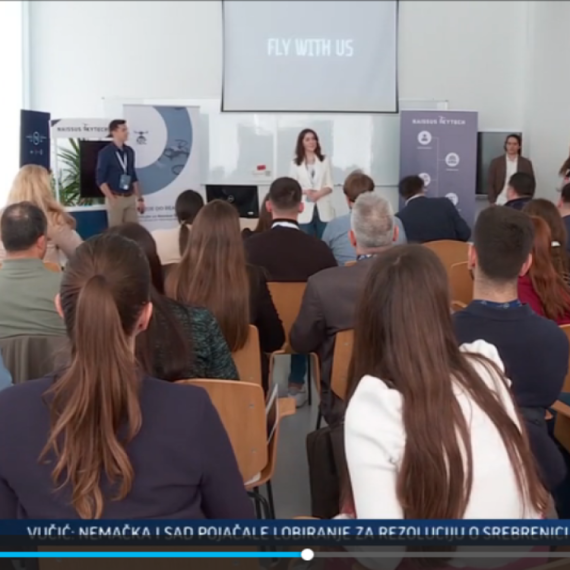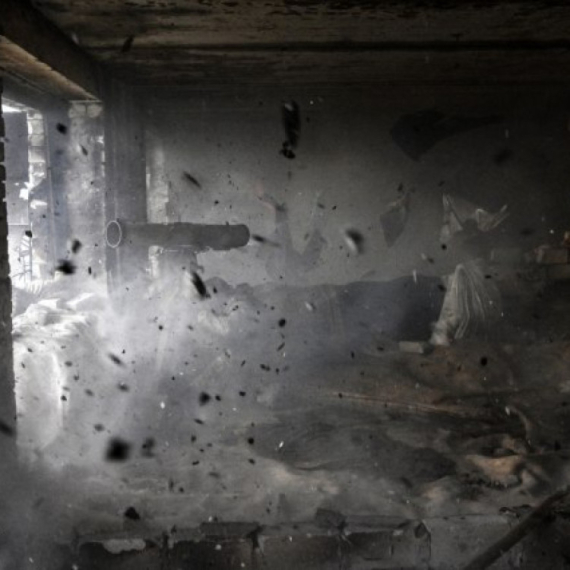Belgrade, Priština cooperating over missing persons
Belgrade and Priština have pledged to do more to address the problem of missing persons who disappeared during the conflict in Kosovo between 1998 and 2000.
Thursday, 04.06.2009.
13:06

Belgrade and Pristina have pledged to do more to address the problem of missing persons who disappeared during the conflict in Kosovo between 1998 and 2000. This was stated at a meeting of a missing persons task force presided over by the International Committee of the Red Cross. Belgrade, Pristina cooperating over missing persons According to a statement, both sides will give information on potential new burial sites where the remains of missing persons may be located, while both sides reaffirmed their determination to dedicate themselves to this important humanitarian issue. Pristina delegation chief Pajazit Nusi said that there was currently no evidence to indicate that kidnapped and captive Serbs and other non-Albanians were illegally transported to Albania. “We have some information, as far as Kosovo goes, that we can begin working around Kosara once that area has been de-mined,” he said. “It was painful for all of us, including us Albanians in Kosovo, when the news broke of how Carla Del Ponte had said that people had gone missing, and we are working on it non-stop, but from the information we have so far, we’ve been unable to get any leads on people, dead or alive, crossing the Kosovo border,” Nusi said. Veljko Odalovic, the head of the Serbian delegation, said that Belgrade was constantly on the look-out for any information related to this issue, because such claims “cannot remain without an epilogue.” Odalovic said that an agreement had been reached at the meeting that the Parliamentary Assembly of the Council of Europe should submit a request to send its special rapporteur to the region, to launch an investigation into the claims of trafficking of human organs of abducted and missing Kosovo Serbs in Albania. “It is important now that we are in a situation where we have almost all of the information that we needed,” he said. “The Hague Tribunal conducted the largest number of exhumations and identifications in 1999-2000. The documentation it and the Hague Tribunal ad hoc teams that worked in Kosovo had, has only just reached us, and that only after persistent requests from the Belgrade and Pristina delegations and the International Committee of the Red Cross,” Odalovic said. “We are now getting the real and full picture of what they did on the ground and at what locations, where the bodies were found, the number of bodies buried, identified and turned over to the families, etc,” he explained. Odalovic said that Special Reporter Dick Marty, who, on June 25, was tasked with heading an investigation into the trafficking of the organs of about 250 Serbs who were illegally transported to Albania, was due to submit a report that would hopefully yield some answers and help close the case.
Belgrade, Priština cooperating over missing persons
According to a statement, both sides will give information on potential new burial sites where the remains of missing persons may be located, while both sides reaffirmed their determination to dedicate themselves to this important humanitarian issue.Priština delegation chief Pajazit Nusi said that there was currently no evidence to indicate that kidnapped and captive Serbs and other non-Albanians were illegally transported to Albania.
“We have some information, as far as Kosovo goes, that we can begin working around Košara once that area has been de-mined,” he said.
“It was painful for all of us, including us Albanians in Kosovo, when the news broke of how Carla Del Ponte had said that people had gone missing, and we are working on it non-stop, but from the information we have so far, we’ve been unable to get any leads on people, dead or alive, crossing the Kosovo border,” Nusi said.
Veljko Odalović, the head of the Serbian delegation, said that Belgrade was constantly on the look-out for any information related to this issue, because such claims “cannot remain without an epilogue.”
Odalović said that an agreement had been reached at the meeting that the Parliamentary Assembly of the Council of Europe should submit a request to send its special rapporteur to the region, to launch an investigation into the claims of trafficking of human organs of abducted and missing Kosovo Serbs in Albania.
“It is important now that we are in a situation where we have almost all of the information that we needed,” he said.
“The Hague Tribunal conducted the largest number of exhumations and identifications in 1999-2000. The documentation it and the Hague Tribunal ad hoc teams that worked in Kosovo had, has only just reached us, and that only after persistent requests from the Belgrade and Priština delegations and the International Committee of the Red Cross,” Odalović said.
“We are now getting the real and full picture of what they did on the ground and at what locations, where the bodies were found, the number of bodies buried, identified and turned over to the families, etc,” he explained.
Odalović said that Special Reporter Dick Marty, who, on June 25, was tasked with heading an investigation into the trafficking of the organs of about 250 Serbs who were illegally transported to Albania, was due to submit a report that would hopefully yield some answers and help close the case.












































Komentari 15
Pogledaj komentare